Technological Innovation →
→

- 22 Feb 2024
- Research & Ideas
How to Make AI 'Forget' All the Private Data It Shouldn't Have
When companies use machine learning models, they may run the risk of inadvertently sharing sensitive and private data. Seth Neel explains why it’s important to understand how to wipe AI’s spongelike memory clean.
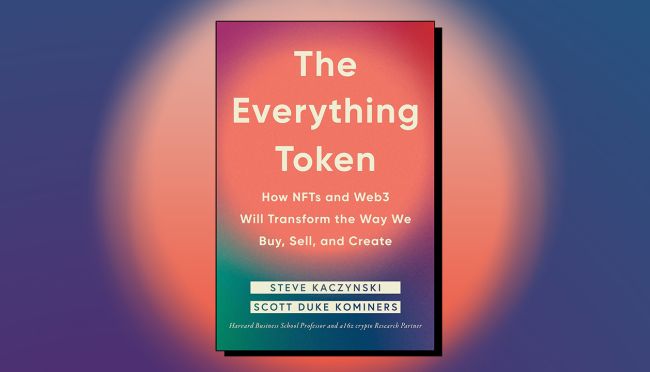
- 23 Jan 2024
- Book
More Than Memes: NFTs Could Be the Next Gen Deed for a Digital World
Non-fungible tokens might seem like a fad approach to selling memes, but the concept could help companies open new markets and build communities. Scott Duke Kominers and Steve Kaczynski go beyond the NFT hype in their book, The Everything Token.

- 09 Jan 2024
- In Practice
Harnessing AI: What Businesses Need to Know in ChatGPT’s Second Year
Companies across industries rushed to adopt ChatGPT last year, seeing its potential to streamline tasks formerly handled by people and vendors at much higher cost. As generative AI enters its next phase in 2024, what can leaders expect? Harvard Business School faculty members highlight four trends to watch.
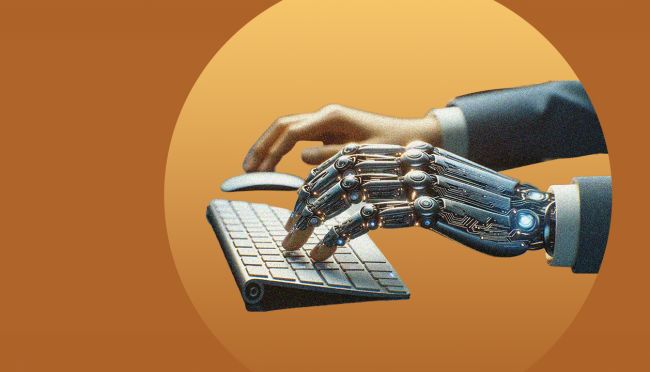
- 22 Nov 2023
- Research & Ideas
Humans vs. Machines: Untangling the Tasks AI Can (and Can't) Handle
Are you a centaur or a cyborg? A study of 750 consultants sheds new light on the strengths and limits of ChatGPT, and what it takes to operationalize generative AI. Research by Edward McFowland III, Karim Lakhani, Fabrizio Dell'Acqua, and colleagues.
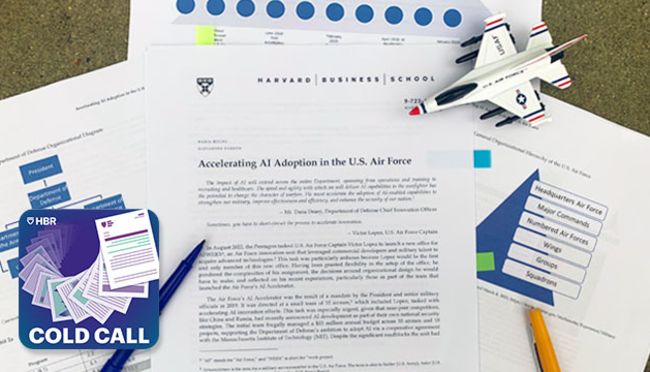
- 24 Oct 2023
- Cold Call Podcast
How the United States Air Force Accelerated AI Adoption
In August 2022, the Pentagon tasked U.S. Air Force Captain Victor Lopez with launching a new Air Force innovation unit that leveraged commercial developers and military talent to acquire advanced technologies. Having been granted flexibility in the setup of the office, Lopez pondered the complexities of his assignment and the decisions around organizational design he would have to make. It’s often believed that only small start-up organizations can innovate, but a lot of innovation happens in big organizations, including government. Harvard Business School assistant professor Maria Roche is joined by Major Lopez to discuss the challenges of digital transformation in a large bureaucratic organization and the specific choices the U.S. Air Force needed to make when launching its AI Accelerator in her case, "Accelerating AI Adoption in the United States Air Force."

- 26 Sep 2023
- Book
Digital Strategy: A Handbook for Managing a Moving Target
Digital strategy demands significant organizational energy at many companies. By the time teams have adapted to newly implemented technology, another platform has emerged to replace it. A book coedited by Feng Zhu offers a guide for executives trying to manage the chaos.

- 19 Sep 2023
- Research & Ideas
What Chandrayaan-3 Says About India's Entrepreneurial Approach to Space
India reached an unexplored part of the moon despite its limited R&D funding compared with NASA and SpaceX. Tarun Khanna discusses the significance of the landing, and the country's advancements in data and digital technology.
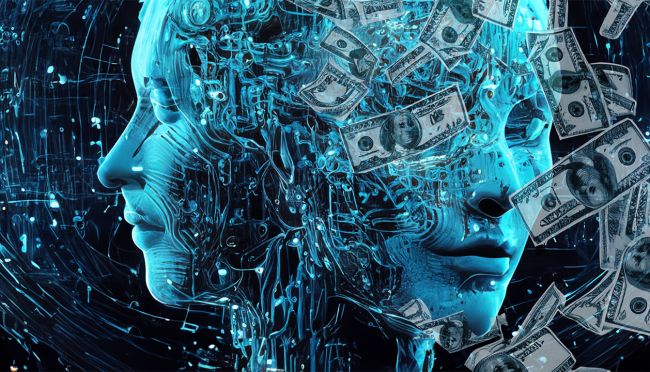
- 19 Sep 2023
- HBS Case
How Will the Tech Titans Behind ChatGPT, Bard, and LLaMA Make Money?
It seems like anything is possible with generative AI right now. But how will companies profit from those big ideas? Andy Wu breaks down the potentially painful tradeoffs that tech firms might face as artificial intelligence enters its next phase.
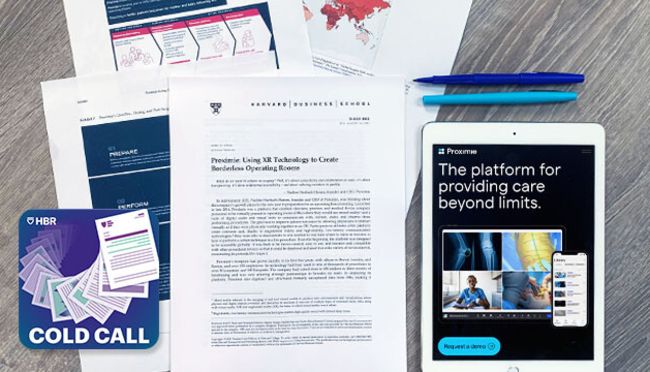
- 12 Sep 2023
- Cold Call Podcast
Can Remote Surgeries Digitally Transform Operating Rooms?
Launched in 2016, Proximie was a platform that enabled clinicians, proctors, and medical device company personnel to be virtually present in operating rooms, where they would use mixed reality and digital audio and visual tools to communicate with, mentor, assist, and observe those performing medical procedures. The goal was to improve patient outcomes. The company had grown quickly, and its technology had been used in tens of thousands of procedures in more than 50 countries and 500 hospitals. It had raised close to $50 million in equity financing and was now entering strategic partnerships to broaden its reach. Nadine Hachach-Haram, founder and CEO of Proximie, aspired for Proximie to become a platform that powered every operating room in the world, but she had to carefully consider the company’s partnership and data strategies in order to scale. What approach would position the company best for the next stage of growth? Harvard Business School associate professor Ariel Stern discusses creating value in health care through a digital transformation of operating rooms in her case, “Proximie: Using XR Technology to Create Borderless Operating Rooms.”

- 15 Aug 2023
- HBS Case
(Virtual) Reality Check: How Long Before We Live in the 'Metaverse'?
Generative AI has captured the collective imagination for the moment, eclipsing the once-hyped metaverse. However, it's not the end of virtual reality. A case study by Andy Wu and David Yoffie lays out the key challenges immersive 3D technology must overcome to be truly transformative.

- 30 May 2023
- Research & Ideas
Can AI Predict Whether Shoppers Would Pick Crest Over Colgate?
Is it the end of customer surveys? Definitely not, but research by Ayelet Israeli sheds light on the potential for generative AI to improve market research. But first, businesses will need to learn to harness the technology.
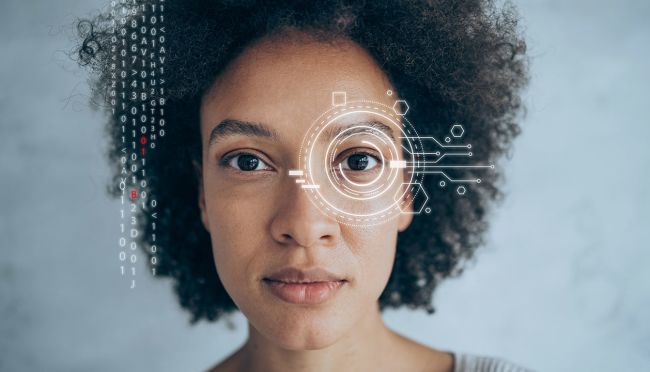
- 03 May 2023
- Research & Ideas
Why Confronting Racism in AI 'Creates a Better Future for All of Us'
Rather than build on biased data and technology from the past, artificial intelligence has an opportunity to do better, says Business in Global Society Fellow Broderick Turner. He highlights three myths that prevent business leaders from breaking down racial inequality.
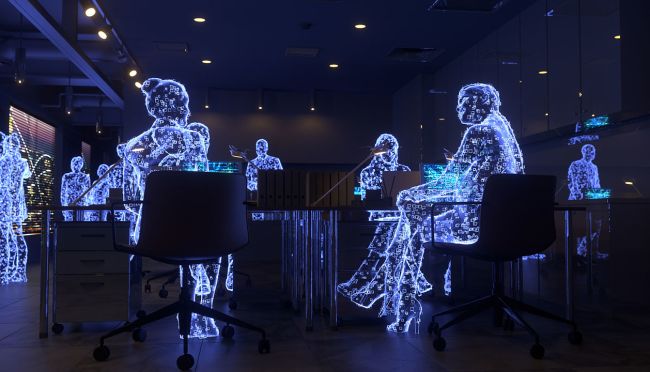
- 26 Apr 2023
- In Practice
Is AI Coming for Your Job?
In a post-AI world, where an algorithm can draft marketing copy—or even pop songs and movie scripts—anything seems possible. Harvard Business School faculty members discuss how artificial intelligence could reshape how work gets done.
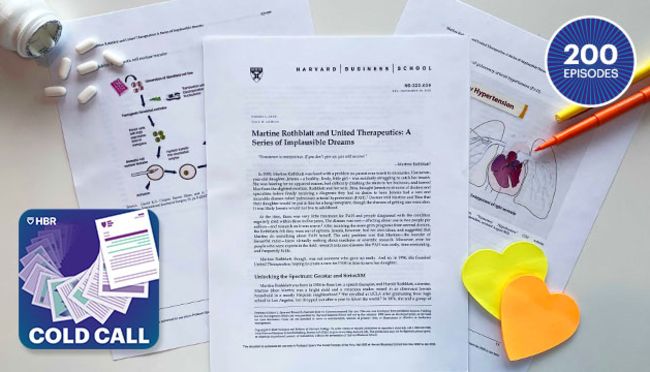
- 26 Apr 2023
- Cold Call Podcast
How Martine Rothblatt Started a Company to Save Her Daughter
When serial entrepreneur Martine Rothblatt (founder of Sirius XM) received her seven-year-old daughter’s diagnosis of Pulmonary Arterial Hypertension (PAH), she created United Therapeutics and developed a drug to save her life. When her daughter later needed a lung transplant, Rothblatt decided to take what she saw as the logical next step: manufacturing organs for transplantation. Rothblatt’s entrepreneurial career exemplifies a larger debate around the role of the firm in creating solutions for society’s problems. If companies are uniquely good at innovating, what voice should society have in governing the new technologies that firms create? Harvard Business School professor Debora Spar debates these questions in the case “Martine Rothblatt and United Therapeutics: A Series of Implausible Dreams.” As part of a new first-year MBA course at Harvard Business School, this case examines the central question: what is the social purpose of the firm?

- 25 Apr 2023
- Op-Ed
How SHEIN and Temu Conquered Fast Fashion—and Forged a New Business Model
The platforms SHEIN and Temu match consumer demand and factory output, bringing Chinese production to the rest of the world. The companies have remade fast fashion, but their pioneering approach has the potential to go far beyond retail, says John Deighton.

- 11 Apr 2023
- Research & Ideas
Is Amazon a Retailer, a Tech Firm, or a Media Company? How AI Can Help Investors Decide
More companies are bringing seemingly unrelated businesses together in new ways, challenging traditional stock categories. MarcAntonio Awada and Suraj Srinivasan discuss how applying machine learning to regulatory data could reveal new opportunities for investors.
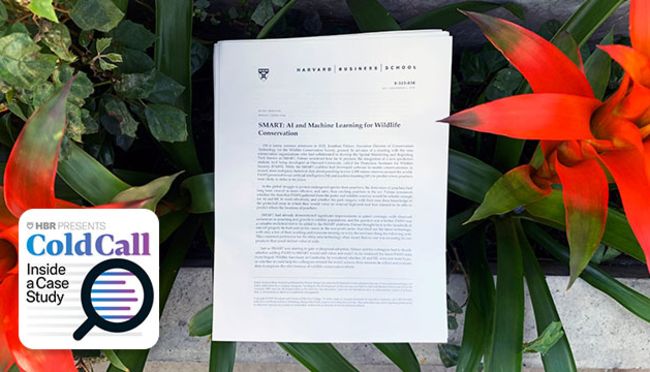
- 14 Mar 2023
- Cold Call Podcast
Can AI and Machine Learning Help Park Rangers Prevent Poaching?
Globally there are too few park rangers to prevent the illegal trade of wildlife across borders, or poaching. In response, Spatial Monitoring and Reporting Tool (SMART) was created by a coalition of conservation organizations to take historical data and create geospatial mapping tools that enable more efficient deployment of rangers. SMART had demonstrated significant improvements in patrol coverage, with some observed reductions in poaching. Then a new predictive analytic tool, the Protection Assistant for Wildlife Security (PAWS), was created to use artificial intelligence (AI) and machine learning (ML) to try to predict where poachers would be likely to strike. Jonathan Palmer, Executive Director of Conservation Technology for the Wildlife Conservation Society, already had a good data analytics tool to help park rangers manage their patrols. Would adding an AI- and ML-based tool improve outcomes or introduce new problems? Harvard Business School senior lecturer Brian Trelstad discusses the importance of focusing on the use case when determining the value of adding a complex technology solution in his case, “SMART: AI and Machine Learning for Wildlife Conservation.”

- 07 Mar 2023
- HBS Case
ChatGPT: Did Big Tech Set Up the World for an AI Bias Disaster?
Google tried to silence AI bias warnings from ethicist Timnit Gebru. Will a world enamored with OpenAI's ChatGPT be able to confront them? Tsedal Neeley reflects on Gebru's experience in a case study, and offers advice on managing the ethical risks of AI.

- 31 Jan 2023
- Op-Ed
Can Insurance Technology Solve the Uninsured Driver Problem?
High fees prevent many drivers from buying auto insurance—often with catastrophic consequences. Raymond Kluender offers a novel way to make coverage affordable and roads safer: Let drivers pay for only the days they drive.

How Humans Outshine AI in Adapting to Change
Could artificial intelligence systems eventually perform surgeries or fly planes? First, AI will have to learn to navigate shifting conditions as well as people do. Julian De Freitas and colleagues pit humans against machines in a video game to study AI's current limits and mine insights for the real world.